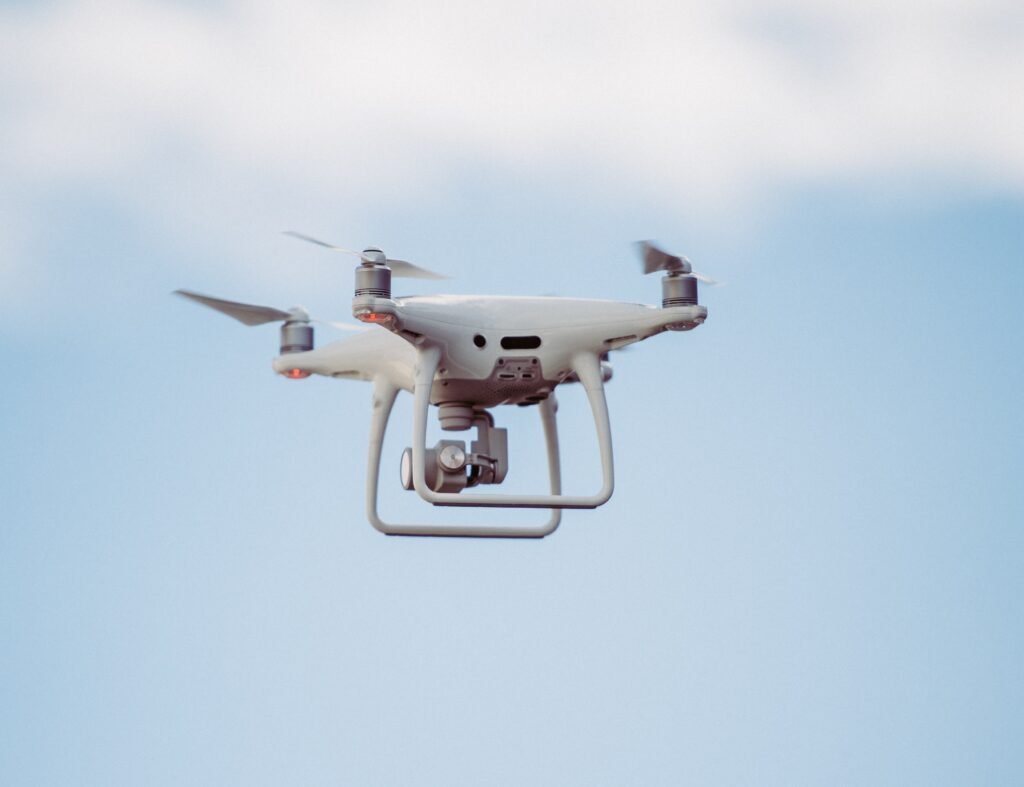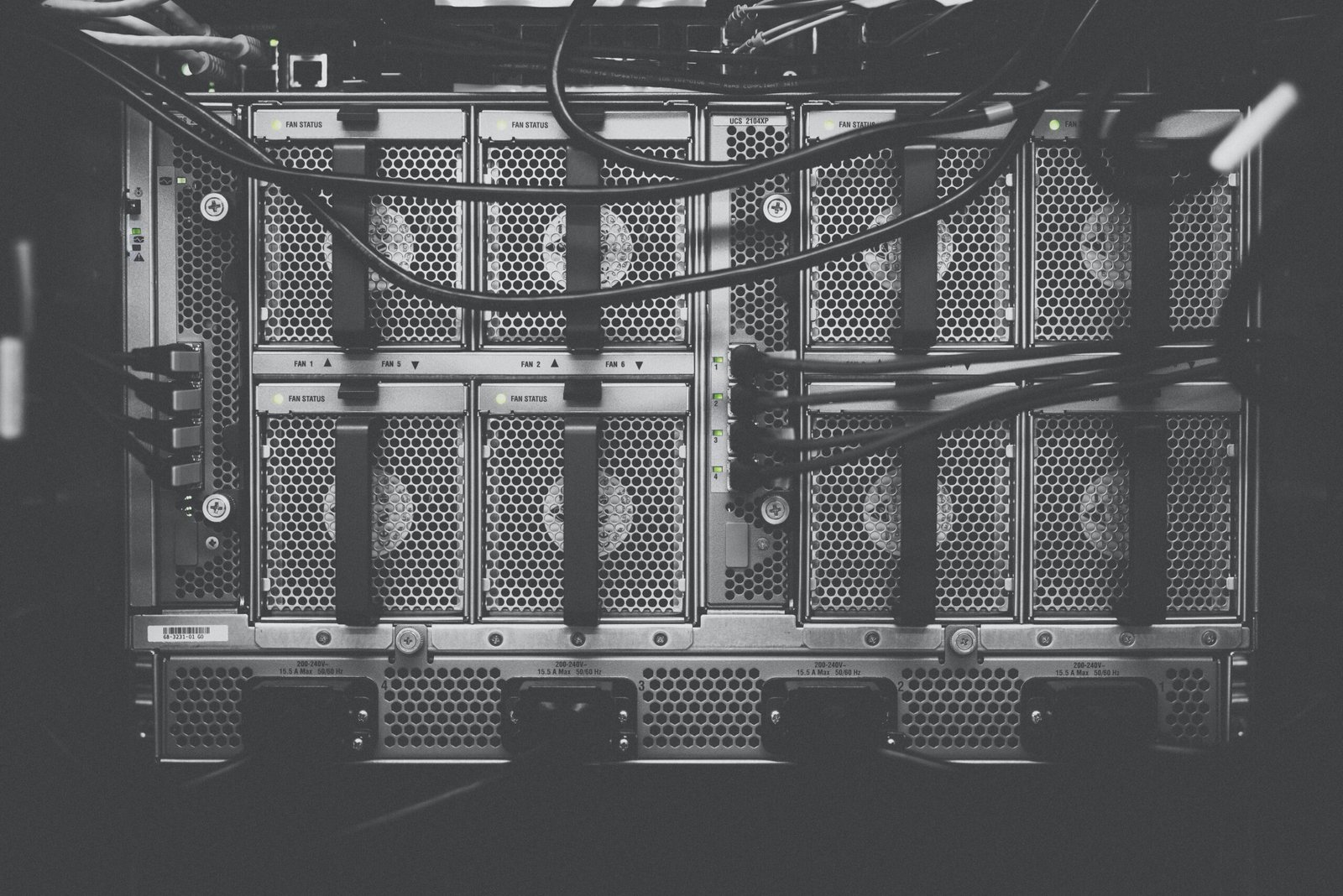Artificial Intelligence (AI) is revolutionizing diverse industries, paving the way for a future permeated by innovation. From manufacturing robots to self-driving cars, smart assistants to virtual travel agents, the impact of AI is undeniable. Not only does AI automate processes and provide personalized learning options, but it has also made significant advancements in realms such as fashion design. AI-powered robots are addressing complex challenges in sectors like robotics and education, while companies like iRobot and Softbank Robotics lead the charge. Smart assistants like Siri and Cortana, integrated into phones, cars, and smart home devices, use AI to assist users with a myriad of tasks. Moreover, AI has the potential to transform healthcare, elevating diagnostic accuracy, aiding drug discovery, and enhancing patient care. Notable examples include PathAI and Atomwise, among others. Additionally, self-driving cars rely on AI’s data analysis capabilities to drive safely, with companies like Cruise and Waymo at the forefront of this transformative industry. AI is undeniably reshaping the world as we know it, and its potential knows no bounds.

Manufacturing Industry
AI robots in manufacturing
Artificial intelligence has revolutionized the manufacturing industry with the introduction of AI-powered robots. These robots are designed to perform complex tasks and solve problems that were previously done by human workers. They have the ability to analyze data, make decisions, and execute tasks with precision and efficiency.
By using AI robots in manufacturing, companies can streamline their production processes, increase productivity, and reduce costs. These robots can work 24/7 without the need for breaks, ensuring continuous production. They can also improve safety in the workplace by taking over hazardous or repetitive tasks that can put human workers at risk.
Examples of companies using AI robots in manufacturing include iRobot, Hanson Robotics, Softbank Robotics, and Miso Robotics. These companies have developed robots that can perform a wide range of tasks, from assembly line operations to quality control inspections. With AI robots, manufacturers can improve their production efficiency and maintain high-quality standards.
Improvement in quality control
Another area where AI has made a significant impact in the manufacturing industry is quality control. Traditionally, quality control inspections were done manually by humans, which could be time-consuming and prone to errors. However, with the introduction of AI, companies can now automate the quality control process and ensure consistent product quality.
AI-powered systems can analyze data from various sensors and cameras to detect defects or abnormalities in products. They can quickly identify any issues and make real-time adjustments to maintain quality standards. This not only saves time but also reduces the likelihood of faulty products reaching the market.
By using AI for quality control, manufacturers can improve customer satisfaction and brand reputation. They can catch potential issues early on, allowing for timely interventions and preventing costly recalls. With AI systems constantly monitoring the production process, companies can ensure that their products meet the highest standards of quality.
Streamlining production processes
AI has also played a key role in streamlining production processes in the manufacturing industry. With the ability to process and analyze large amounts of data, AI systems can identify bottlenecks and inefficiencies in the production line. This allows manufacturers to optimize their processes, reduce waste, and increase overall efficiency.
For example, AI can help manufacturers predict demand patterns and adjust production accordingly. By analyzing historical data and market trends, AI systems can provide accurate forecasts, allowing companies to optimize their inventory levels and avoid overproduction or stockouts. This ensures a smooth production flow and minimizes costs associated with excessive inventory or lost sales.
Additionally, AI can be used to automate repetitive tasks, such as data entry or inventory management. This frees up human workers to focus on more complex and strategic tasks, improving overall productivity. AI systems can also monitor equipment performance in real-time, detecting any potential issues before they cause significant disruptions to the production process.
By leveraging AI to streamline production processes, manufacturers can achieve greater efficiency, lower costs, and faster time-to-market. They can respond more effectively to changing customer demands and market conditions, gaining a competitive edge in the industry.
Transportation Industry
Self-driving cars
One of the most noteworthy advancements in the transportation industry is the development of self-driving cars. AI plays a crucial role in enabling these autonomous vehicles to navigate roads, detect obstacles, and make informed decisions in real-time.
Self-driving cars rely on a combination of sensors, cameras, and AI algorithms to perceive their surroundings and respond to changing conditions. AI systems analyze the data collected by these sensors and make split-second decisions, ensuring safe and efficient driving.
The benefits of self-driving cars extend beyond convenience and comfort. They have the potential to significantly reduce accidents caused by human error, as AI is not subject to distractions or fatigue. Self-driving cars can also optimize traffic flow, reducing congestion and commute times.
Companies such as Cruise, Motional, Waymo, Spartan, and Tesla are at the forefront of the autonomous driving industry. They have made significant advancements in developing self-driving technology and are working towards making self-driving cars a viable and mainstream mode of transportation.
Optimizing traffic flow
Another area where AI is transforming the transportation industry is in optimizing traffic flow. By using AI algorithms to analyze traffic patterns and real-time data, transportation agencies can make informed decisions to improve traffic flow and reduce congestion.
AI systems can predict traffic conditions based on historical data, weather patterns, and events. This allows transportation agencies to implement measures such as adjusting signal timings, rerouting traffic, or providing real-time alerts to drivers, which can help alleviate congestion and improve overall traffic flow.
By optimizing traffic flow, AI can reduce travel times, fuel consumption, and emissions. It can also enhance road safety by minimizing stop-and-go traffic, which is a common cause of accidents.
Enhancing transportation efficiency
AI is also being used to enhance transportation efficiency in various ways. For example, AI-powered systems can optimize route planning and fleet management for logistics companies. By analyzing data on delivery locations, traffic conditions, and vehicle performance, AI can suggest the most efficient routes and scheduling to minimize costs and maximize efficiency.
Additionally, AI can improve public transportation systems by analyzing passenger data and optimizing bus or train schedules. By predicting demand patterns and adjusting frequencies accordingly, AI systems can ensure that transportation services are provided efficiently and effectively.
By leveraging AI technologies, the transportation industry can achieve significant improvements in safety, efficiency, and sustainability. From self-driving cars to optimized traffic flow and enhanced transportation services, AI is driving the industry towards a smarter and more connected future.
Healthcare Industry
AI in diagnostic accuracy
Artificial intelligence has the potential to revolutionize healthcare by improving diagnostic accuracy. AI algorithms can analyze medical imaging data, such as X-rays, MRIs, and CT scans, and assist healthcare professionals in detecting and diagnosing diseases and conditions.
By leveraging AI, healthcare providers can enhance their ability to identify subtle abnormalities or patterns in medical images that may be missed by human eyes. AI systems can flag potential issues, provide additional insights, and assist in making more accurate and timely diagnoses.
Companies like PathAI, Well, Atomwise, Covera Health, and Pager are examples of organizations that are using AI to improve diagnostic accuracy. Their AI-powered systems are trained on vast amounts of medical data, allowing them to provide valuable support to healthcare professionals in diagnosing diseases such as cancer, heart disease, and neurological disorders.
Drug discovery with AI
AI is also transforming the drug discovery process in the healthcare industry. Developing new drugs can be a time-consuming and expensive process, but with the help of AI, this process can be accelerated and made more efficient.
AI algorithms can analyze vast amounts of data, including genetic information, molecular structures, and clinical trial data, to identify potential drug candidates. By simulating interactions between molecules and predicting their efficacy, AI can help researchers identify promising compounds for further development.
By using AI in drug discovery, companies can streamline the research and development process, reducing costs and time to market. This can potentially lead to the development of new treatments and therapies for various diseases, improving patient outcomes.
Enhancing patient care
AI is also being used to enhance patient care in the healthcare industry. For example, AI-powered systems can analyze electronic health records and provide personalized treatment recommendations based on a patient’s medical history, symptoms, and genetic information.
By leveraging AI, healthcare providers can improve treatment outcomes and reduce the likelihood of medical errors. AI algorithms can analyze vast amounts of medical data to identify patterns and trends, allowing healthcare professionals to make more informed decisions about treatment plans.
Additionally, AI-powered chatbots and virtual assistants can provide patients with personalized health information, answer their questions, and offer support. These chatbots can help patients navigate through the healthcare system, provide information on medications or treatments, and remind them of important appointments or medications.
With AI-enhanced patient care, the healthcare industry can improve patient outcomes, reduce healthcare costs, and enhance the overall patient experience. AI has the potential to revolutionize how healthcare is delivered and transform the industry for the better.
Financial Services Industry
Automated financial investing
AI is transforming the financial services industry by enabling automated financial investing. AI algorithms can analyze vast amounts of financial data, market trends, and customer preferences to make personalized investment recommendations.
By leveraging AI, financial institutions can automate investment processes, reducing the need for human intervention and streamlining investment management. AI-powered systems can continuously monitor market conditions, analyze portfolios, and make adjustments in real-time to optimize returns and manage risks.
Automated financial investing not only provides individuals with personalized investment strategies but also improves accessibility and affordability. AI-powered investment platforms can offer low-cost investment options and empower individuals to make informed financial decisions.
Fraud detection and prevention
AI is also playing a crucial role in fraud detection and prevention in the financial services industry. AI algorithms can analyze large volumes of financial data, transaction patterns, and customer behavior to detect potential fraudulent activities.
By using AI, financial institutions can quickly identify and flag suspicious transactions, reducing the risk of financial losses and preventing fraudulent activities from occurring. AI-powered systems can continuously learn and adapt to new fraud patterns, improving their effectiveness over time.
Additionally, AI can help automate the process of verifying customer identities and detecting identity theft. By analyzing multiple data points, such as biometrics, government records, and social media activity, AI systems can assess the risk associated with a particular individual and ensure the security of financial transactions.
Personalized financial advice
AI is enabling the provision of personalized financial advice in the financial services industry. By analyzing customer data, financial goals, and risk tolerance, AI-powered systems can provide tailored financial recommendations to individuals.
With personalized financial advice, individuals can make more informed decisions about saving, investing, and managing their finances. AI-powered systems can provide insights, recommendations, and strategies that are customized to each individual’s unique circumstances and goals.
Furthermore, AI-powered financial advisors can provide ongoing monitoring and guidance, ensuring individuals stay on track with their financial plans. Through regular updates, notifications, and proactive recommendations, individuals can navigate their financial journey with confidence and clarity.
By leveraging AI in the financial services industry, institutions can enhance customer experiences, improve financial outcomes, and provide accessible and affordable financial services to a wider population. AI is transforming how financial services are delivered, empowering individuals to make better financial decisions and achieve their long-term goals.

Travel and Tourism Industry
Virtual travel booking agents
AI is revolutionizing the travel and tourism industry by providing virtual travel booking agents. These AI-powered systems can assist individuals in planning and booking their travel arrangements, making the process more convenient and personalized.
With virtual travel booking agents, individuals can interact with AI-powered chatbots or virtual assistants to get recommendations on destinations, flights, accommodations, and activities. These agents can analyze individual preferences, past travel history, and budget constraints to offer tailored travel options.
Additionally, AI can provide real-time updates and alerts on travel conditions, such as flight delays, cancellations, or weather disruptions. Virtual travel booking agents can also provide suggestions for alternative itineraries or accommodations when unexpected changes occur.
By using AI in travel booking, individuals can save time, receive personalized recommendations, and have a smoother and more enjoyable travel experience. AI is transforming how travel arrangements are made, making it easier for individuals to explore the world.
Improved travel recommendations
AI is also improving travel recommendations by analyzing vast amounts of data on destinations, customer reviews, and travel preferences. AI algorithms can identify patterns, trends, and similarities to offer personalized travel recommendations to individuals.
By considering individual preferences, such as preferred activities, budget constraints, and travel goals, AI-powered systems can suggest destinations, attractions, and accommodations that align with each individual’s unique travel preferences.
Additionally, AI can analyze social media data to identify popular trends and hidden gems. By considering influencers, user-generated content, and online reviews, AI can provide up-to-date and relevant travel recommendations that cater to different interests and preferences.
With improved travel recommendations, individuals can discover new destinations, have more authentic travel experiences, and make the most out of their trips. AI-powered travel recommendations offer a personalized and curated approach to travel planning, enhancing the overall travel experience.
Enhanced customer experience
AI is enhancing the customer experience in the travel and tourism industry in various ways. AI-powered chatbots and virtual assistants can interact with customers in real-time, answering their questions, providing assistance, and offering recommendations.
By using natural language processing and machine learning, AI-powered chatbots can engage in conversations with customers, understand their needs, and provide personalized responses. They can assist with bookings, provide information on travel requirements, and offer suggestions for activities or attractions.
AI can also enhance the customer experience by anticipating customer needs and preferences. By analyzing customer data and behavior, AI-powered systems can provide proactive recommendations or personalized offers, creating a more tailored and memorable experience for each individual.
With enhanced customer experience, the travel and tourism industry can build stronger customer relationships, increase customer satisfaction, and encourage repeat business. AI is transforming how customers interact with travel providers, making the entire experience more convenient, personalized, and enjoyable.
Retail Industry
Personalized shopping experiences
In the retail industry, AI is shaping the future by providing personalized shopping experiences. AI-powered systems can analyze customer data, purchase history, and browsing behavior to offer personalized product recommendations and customized shopping experiences.
By leveraging AI, retailers can create personalized product suggestions, promotions, and discounts tailored to each customer’s preferences and interests. These recommendations can be delivered through various channels, such as email, mobile apps, or online platforms, providing customers with a seamless and personalized shopping experience.
Furthermore, AI can assist customers in finding the right products by analyzing their preferences, body measurements, and style preferences. Virtual assistants or AI-powered chatbots can engage in conversations with customers, offering style advice, suggesting outfit combinations, or providing information on product availability.
With personalized shopping experiences, retailers can improve customer satisfaction, increase sales, and build stronger customer loyalty. AI enables retailers to understand their customers on a deeper level and offer customized solutions, creating a more engaging and enjoyable shopping experience.
Inventory management and optimization
AI is also transforming inventory management and optimization in the retail industry. By analyzing historical sales data, market trends, and customer demand patterns, AI-powered systems can provide accurate inventory forecasts and optimize stock levels.
AI algorithms can predict future demand for different products, allowing retailers to adjust their inventory levels accordingly. This helps eliminate excess inventory or stockouts, improving overall supply chain efficiency and reducing costs associated with inventory management.
Additionally, AI can help retailers identify slow-moving or outdated inventory and develop strategies to minimize losses or liquidate inventory. By analyzing sales data and market conditions, AI systems can suggest pricing strategies, promotions, or targeted marketing campaigns to optimize sales and prevent inventory obsolescence.
By leveraging AI for inventory management and optimization, retailers can minimize costs, reduce waste, and improve customer satisfaction. AI enables retailers to make data-driven decisions, ensuring that the right products are available at the right time and in the right quantities.
AI-powered chatbots for customer service
AI-powered chatbots are revolutionizing customer service in the retail industry. These chatbots can interact with customers in real-time, answer their questions, provide support, and even make product recommendations.
By using natural language processing and machine learning, AI-powered chatbots can engage in conversations with customers, understand their inquiries, and provide accurate and helpful responses. They can assist with various customer service tasks, such as tracking orders, processing returns, or providing product information.
AI-powered chatbots can also analyze customer data and past interactions to offer personalized assistance. By considering each customer’s preferences, purchase history, and browsing behavior, chatbots can provide tailored recommendations, promotions, or discounts.
By using AI-powered chatbots for customer service, retailers can provide round-the-clock support, improve response times, and enhance the overall customer experience. Chatbots offer convenience and personalized assistance, ensuring that customers feel supported and satisfied throughout their shopping journey.

Education Industry
AI-based personalized learning
AI is revolutionizing the education industry by providing personalized learning experiences. AI-powered systems can analyze individual learning preferences, strengths, and weaknesses to deliver customized learning materials and adapt instructional strategies.
By leveraging AI, educators can create personalized learning paths for students, ensuring that they receive content and resources that cater to their unique needs. AI-powered systems can assess student performance, identify areas where additional support is needed, and provide targeted feedback or interventions.
Additionally, AI can adapt instructional strategies based on individual learning styles and preferences. By analyzing how each student interacts with educational content, AI can adjust the pace, difficulty level, or teaching approach to optimize learning outcomes.
With AI-based personalized learning, educators can enhance student engagement, improve learning outcomes, and foster individualized learning experiences. AI enables educators to create adaptive and customized learning environments that meet the needs of each student.
Customized curricula and assessments
AI is also transforming the design and assessment of curricula in the education industry. By analyzing learning objectives, student performance data, and educational standards, AI-powered systems can suggest customized curricula that align with desired learning outcomes.
AI algorithms can analyze large amounts of educational data, including textbooks, online resources, and learning materials, to identify the most relevant and effective resources for each student. This enables educators to create tailored curricula that meet the specific needs and interests of their students.
Additionally, AI can assist in the assessment of student learning. By analyzing student responses, AI algorithms can provide automated feedback, identify areas of improvement, and suggest additional resources or activities to support student learning.
With customized curricula and assessments, educators can create dynamic and engaging learning experiences that cater to the diverse needs of students. AI empowers educators to design personalized learning journeys and ensure that each student reaches their full potential.
Virtual tutoring and mentoring
AI is enhancing the accessibility and effectiveness of tutoring and mentoring in the education industry. Virtual tutoring and mentoring platforms leverage AI to provide personalized support and guidance to students, regardless of their location or learning environment.
By using AI algorithms, virtual tutoring platforms can assess individual learning needs, recommend appropriate learning resources, and provide feedback on student progress. This allows students to receive personalized instruction and support from qualified educators remotely.
Virtual tutoring and mentoring platforms can also leverage AI to match students with tutors or mentors who have expertise in specific subjects or areas of interest. By considering student preferences, learning goals, and tutor availability, AI algorithms can facilitate meaningful and productive tutoring or mentoring relationships.
With virtual tutoring and mentoring powered by AI, students can access quality educational support, no matter where they are located. AI-enabled platforms bring personalized instruction and guidance to students, ensuring that they receive the individualized support they need to succeed.
Marketing and Advertising Industry
AI-powered social media monitoring
AI is transforming the marketing and advertising industry by providing powerful social media monitoring tools. AI algorithms can analyze vast amounts of social media data, such as posts, comments, and user interactions, to gain insights into customer behavior, preferences, and sentiment.
By leveraging AI, marketers can monitor social media conversations, identify trends, and understand how their brands are being perceived by the target audience. AI-powered systems can analyze sentiment analysis, customer feedback, and user-generated content to assess brand reputation and measure the effectiveness of marketing campaigns.
Furthermore, AI can help automate social media management tasks, such as content scheduling, campaign tracking, or influencer identification. By analyzing engagement data and user behavior, AI-powered systems can provide recommendations on content strategies, optimal posting times, or potential collaboration opportunities.
With AI-powered social media monitoring, marketers can gain valuable insights into customer preferences, align their marketing efforts with target audience interests, and enhance brand perception. AI enables marketers to make data-driven decisions, ensuring that their social media strategies are effective and impactful.
Targeted advertising campaigns
AI is also revolutionizing targeted advertising campaigns in the marketing and advertising industry. By analyzing vast amounts of customer data, online behavior, and preferences, AI algorithms can identify specific target segments and deliver personalized advertisements to the right audience at the right time.
AI-powered systems can analyze customer profiles, purchase history, and browsing behavior to create detailed customer personas. This allows marketers to create targeted advertising campaigns tailored to each customer segment, optimizing the effectiveness and efficiency of their marketing efforts.
Additionally, AI can help optimize ad placement, bidding strategies, and budget allocation. By analyzing real-time data on ad performance, user engagement, and conversion rates, AI-powered systems can suggest adjustments to maximize return on investment and achieve marketing objectives.
With targeted advertising campaigns powered by AI, marketers can improve ad relevancy, increase customer engagement, and drive conversions. AI enables marketers to deliver personalized and impactful advertising messages that resonate with their target audience.
Marketing automation with chatbots
AI-powered chatbots are transforming marketing automation in the marketing and advertising industry. These chatbots can engage with customers in real-time, provide information, answer questions, and even assist with purchasing decisions.
By using natural language processing and machine learning, AI-powered chatbots can understand customer inquiries, provide accurate and relevant responses, and offer personalized recommendations. They can engage in conversations with customers, elicit preferences, and guide them through the purchase process.
Furthermore, AI-powered chatbots can automate various marketing tasks, such as lead generation, customer segmentation, or email marketing. By analyzing customer data, behavior patterns, and engagement history, chatbots can deliver targeted marketing messages, promotions, or product suggestions, ensuring each customer receives relevant and timely communications.
With marketing automation powered by AI, marketers can streamline processes, automate repetitive tasks, and deliver personalized marketing messages at scale. AI enables marketers to engage with customers on a more personal level, providing a seamless and customized marketing experience.

Fashion Industry
AI in fashion design
AI is making waves in the fashion industry by transforming fashion design processes. AI algorithms can analyze vast amounts of fashion data, such as fabric textures, color palettes, and style trends, to generate unique and innovative design concepts.
By using AI, fashion designers can leverage algorithms to inspire and assist in the creative process. AI-powered systems can generate design recommendations based on desired styles, customer preferences, or specific design constraints. Designers can then use these recommendations as a starting point to refine and customize their designs.
Additionally, AI allows designers to experiment with new materials, textures, and patterns through virtual simulations. By using AI-powered tools, designers can visualize their creations in a digital environment, reducing the need for physical samples and accelerating the design iteration process.
With AI in fashion design, designers can explore new creative possibilities, streamline design processes, and bring innovative fashion concepts to life. AI empowers designers to push the boundaries of their creativity and create unique, on-trend designs that captivate the fashion industry.
Virtual fitting rooms
AI is enhancing the fashion retail experience by providing virtual fitting rooms. Virtual fitting rooms leverage AI algorithms to analyze customer body measurements and recommend the right size and fit for a particular garment.
By using AI, customers can try on virtual versions of clothes without physically trying them on. AI-powered virtual fitting rooms can overlay virtual garments onto the customer’s body image, allowing them to see how the clothes would look and fit before making a purchase.
Virtual fitting rooms enable customers to make more confident purchasing decisions, reducing the likelihood of returns or exchanges due to sizing issues. By providing a more accurate representation of how clothes will fit, virtual fitting rooms enhance the overall online shopping experience and increase customer satisfaction.
Personalized style recommendations
AI is also transforming the way fashion retailers provide personalized style recommendations. By analyzing customer purchase history, browsing behavior, and fashion preferences, AI algorithms can suggest personalized style recommendations to each individual.
With AI-powered systems, fashion retailers can offer customized product recommendations, styling tips, or complete outfits tailored to each customer’s unique taste and preferences. By considering factors such as body type, personal style, and occasion, AI can assist customers in finding the perfect outfit or accessories.
Additionally, AI can analyze fashion trends and provide real-time style recommendations based on current fashion preferences. By analyzing social media data, fashion influencers, and user-generated content, AI-powered systems can offer up-to-date and relevant fashion suggestions that align with the latest trends.
With personalized style recommendations powered by AI, fashion retailers can provide a more engaging and personalized shopping experience. AI enables retailers to understand individual fashion preferences and guide customers in creating their own unique style.
Robotics Industry
AI-powered robotics solutions
AI is revolutionizing the robotics industry by powering advanced robotics solutions. AI algorithms enable robots to perform complex tasks, adapt to changing environments, and interact with humans in more intelligent and intuitive ways.
By using AI, robotics companies can develop robots that can analyze data, make informed decisions, and execute tasks with precision and efficiency. These robots can be used across various industries, including manufacturing, healthcare, logistics, and agriculture, to automate processes and solve complex problems.
Examples of companies using AI in robotics include iRobot, Hanson Robotics, Softbank Robotics, and Miso Robotics. These companies have developed robots that can perform a wide range of tasks, from household chores to surgery assistance. AI-powered robotics solutions are improving productivity, safety, and efficiency in various industries.
Automation of complex tasks
AI-powered robots are transforming industries by automating complex tasks that were previously done by humans. These robots can perform repetitive or hazardous tasks with precision, accuracy, and consistency, reducing the risk of human error and freeing up human workers for more complex and strategic tasks.
By leveraging AI, robotics companies can develop robots that can adapt and learn from their environment. These robots can use sensors and AI algorithms to perceive their surroundings, adapt to changes, and make informed decisions in real-time.
Automation of complex tasks with AI-powered robots can lead to increased productivity, improved efficiency, and reduced costs in industries such as manufacturing, healthcare, logistics, and agriculture. These robots have the potential to revolutionize how work is done, creating safer and more efficient working environments.
Improving productivity and safety
AI-powered robotics solutions are improving productivity and safety in various industries. By automating tasks that are dangerous, repetitive, or physically demanding, robots can reduce the risk of accidents, injuries, and worker fatigue.
In manufacturing, for example, AI robots can perform tasks such as assembly line operations, material handling, or quality control inspections. These robots can work continuously without the need for breaks or rest, ensuring a consistent and efficient production process.
In healthcare, AI robots can assist in surgery, perform repetitive tasks in laboratories, or provide support in patient care. These robots can help reduce the workload of healthcare professionals, improve precision, and enhance patient outcomes.
By leveraging AI-powered robotics solutions, industries can achieve higher productivity, lower costs, and safer working environments. These robots can complement human workers, augmenting their capabilities and creating a more efficient and collaborative workforce.
In conclusion, artificial intelligence is shaping the future in various industries, revolutionizing the way tasks are performed and improving efficiency, productivity, and outcomes. From AI robots in manufacturing to self-driving cars in transportation, AI is transforming industries and creating new possibilities. In healthcare, AI is improving diagnostic accuracy, aiding in drug discovery, and enhancing patient care. The financial services industry is leveraging AI for automated financial investing, fraud detection, and personalized financial advice. Travel and tourism benefit from AI with virtual travel booking agents and enhanced customer experiences. The retail industry uses AI for personalized shopping experiences, inventory management, and AI-powered chatbots for customer service. Education sees AI-based personalized learning, customized curricula, and virtual tutoring and mentoring. The marketing and advertising industry incorporates AI-powered social media monitoring, targeted advertising campaigns, and marketing automation with chatbots. The fashion industry is transformed by AI with fashion design assistance, virtual fitting rooms, and personalized style recommendations. Finally, the robotics industry benefits from AI-powered robotics solutions, automation of complex tasks, and improved productivity and safety. With AI at the forefront, the future of these industries is filled with innovation and progress.







